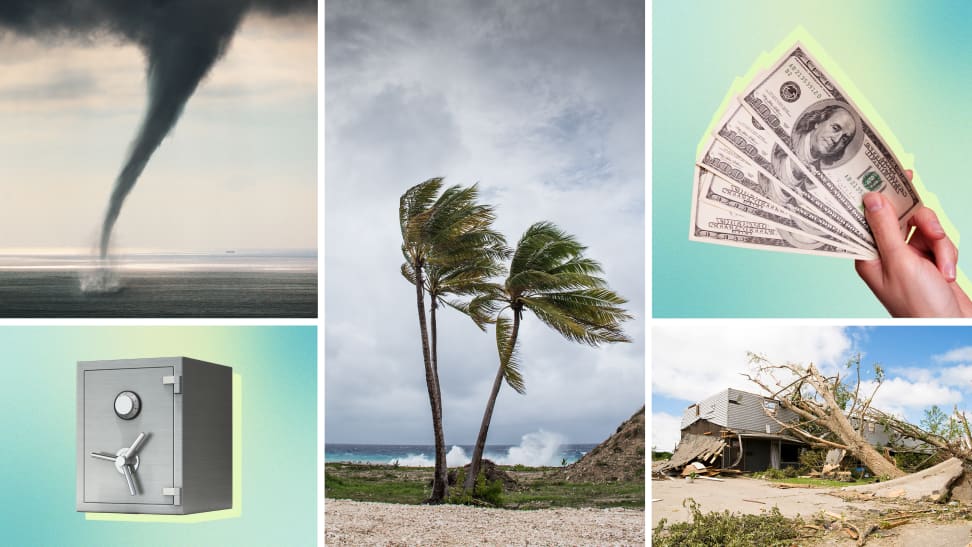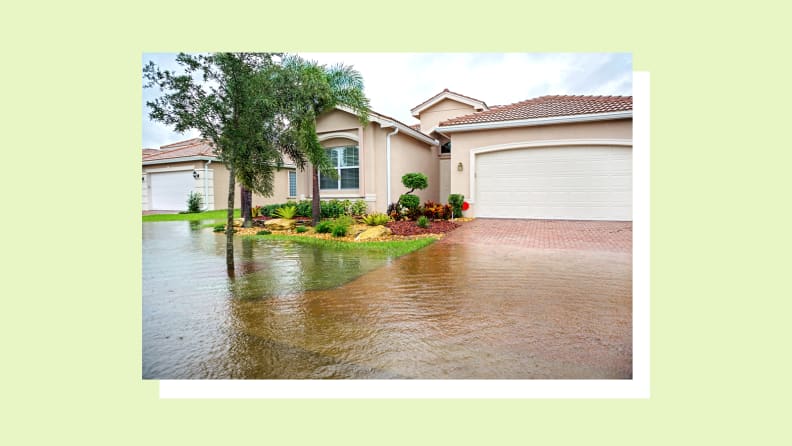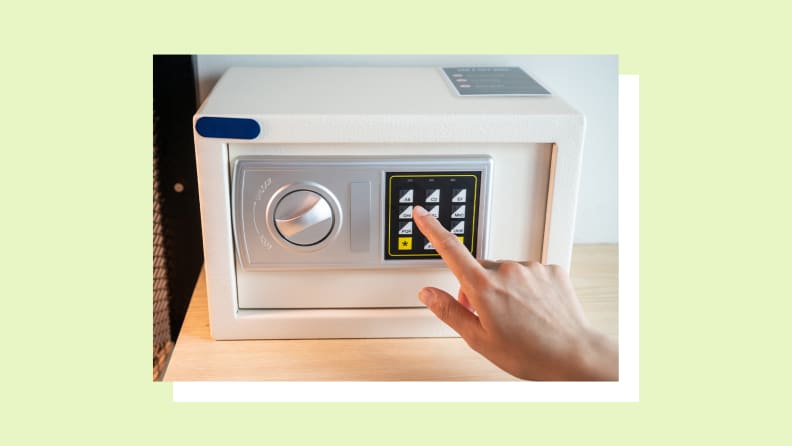How to prepare financially for hurricane season
 — Recommendations are independently chosen by Reviewed’s editors. Purchases you make through our links may earn us a commission.
— Recommendations are independently chosen by Reviewed’s editors. Purchases you make through our links may earn us a commission.Hurricane season runs from June 1 to November 30. People who live in coastal areas especially must prepare for the storm season, but the effects of these ocean-borne storms may be felt far and wide. “Hurricanes are not just a coastal problem,” says Jeremy Edwards, press secretary for the Federal Emergency Management Agency (FEMA). “Rain, wind, water, and even tornadoes could happen far inland from where a hurricane or tropical storm makes landfall.”
In addition to getting flashlights and stocking water and enough food to last a week, you’ll want to get your finances in order. “There's nothing more important than having a disaster plan in place to protect you, your family, and your home,” says Jimmy Patronis, chief financial officer for the state of Florida.
Follow the experts’ advice for preparing financially for hurricane season.
Sign up for our newsletter.
Enter your email:
Make sure your homeowner’s insurance has wind coverage
If you’ve recently moved to a hurricane-prone area, you may not realize this: There’s no such thing as “hurricane insurance.” Instead, you’ll want to ensure that your homeowner’s policy covers for “wind,” which is the main attribute of hurricanes that causes damage. Review the policy on your own, or call your insurance agent for policy details. Some insurance policies either partially or completely exclude wind damages.
Also, even if your policy offers wind coverage, you may need to pay a separate hurricane deductible that may be higher than your standard deductible, according to the Insurance Information Institute. A deductible is the amount of money you pay on an insurance claim before the insurance company will pay the remainder of the coverage—you want to ensure that your deductible is a sum you can afford to pay in the event you need to make a large insurance claim.
Consider flood coverage

FEMA offers several resources before and after a flood occurs, from cost estimation to flood maps.
Another detail you may not realize: Standard home insurance policies don't include flood insurance. If you live in a home within a flood plain and that’s prone to hurricanes (which can drop a ton of rain in a short time period), you may wish to get a separate flood insurance policy for your home. That way you’ll be covered if heavy rains or storm surges cause floods in your local area.
FEMA offers a National Flood Insurance Program and flood insurance is also available in the private insurance market. You’ll have to shop around to determine which policy works best for you, but note: Most flood insurance policies take 30 days to take effect, Patronis says.
Check that you have “additional living expenses” coverage
If your home insurance policy covers “additional living expenses,” this means you'll be covered for expenses such as hotel rooms and restaurant meals should your home become too damaged for you to live in after the storm. Most homeowners’ insurance, condo insurance, and renters’ insurance policies include this type of coverage, but you should double-check before hurricane season starts.
Don’t wait to modify your insurance
The time to purchase additional insurance is ideally before the start of hurricane season and definitely before a storm threatens. Once a hurricane is near, insurance companies won’t take new applications or requests to increase coverage, Patronis says. So purchase your home insurance needs for hurricane season ASAP.
Have a budget for hurricane expenses

Though the extent of damage might be unexpected, the amount spent doesn't have to be.
To budget for a hurricane, add up the costs of insurance deductibles, and supplies such as food, shelter, clothing, and gas for your vehicle. This is how much you may need to spend if a storm strikes. By putting the money aside, you’ll be prepared.
Financial planners recommend putting three to six months of living expenses in an emergency fund, regardless of whether you live in a hurricane zone. But do your best—whatever you save, you’ll be able to tap into in case of a hurricane or other emergency. And there’s a good chance you’ll need it: 60% of households in America have at least one financial emergency a year, according to FEMA.
Make a detailed list and take photos of valuables
Some of the ways to protect valuables from wildfires apply to hurricanes, too: Start with a written and photo inventory of the most valuable items of your home. Keep receipts that show the purchase price of high-ticket items such as appliances, electronics, furniture, and jewelry. Take photos of both individual pricey items and generally all the furnishings in place your home. You may need this detailed inventory to share with your insurance company to prove your losses if your home is damaged by a storm or other disaster.
If you want a digitized backup of your important documents, a portable document scanner like the Doxie Go SE could be the tool you need to save all of your important papers in a format you can access anywhere.
Protect all your personal documents

Your stash of cash will come in handy in the event of city-wide power outage or if your vehicle can't make it to a nearby bank.
Store copies of insurance policies, birth certificates, passports, and medical records in a safe, dry place such as a document-sized, lockable safe tucked into a closet in your home. Something like the SentrySafe fireproof safe could be a good choice here.
Once out of danger of a hurricane, you’ll want your homeowners' or renters' insurance policy, banking information, and other important contacts to be easily accessible—and still intact, even if your home has significant water damage. Scope out the checklists and forms from FEMA so you'll be able to organize the financial, medical, and legal information that you will need after a hurricane.
Hide some cash in your house for emergencies
If a storm is in the forecast, take out cash—at least a couple hundred dollars—to allow you to pay for food and supplies such as gas as you weather the storm and its aftermath. After a hurricane, your area could go days and weeks without power or internet. “Remember, ATMs and credit cards may not work during a disaster,” Edwards says.
Related content
The product experts at Reviewed have all your shopping needs covered. Follow Reviewed on Facebook, Twitter, Instagram, TikTok, or Flipboard for the latest deals, product reviews, and more.
Prices were accurate at the time this article was published but may change over time.


